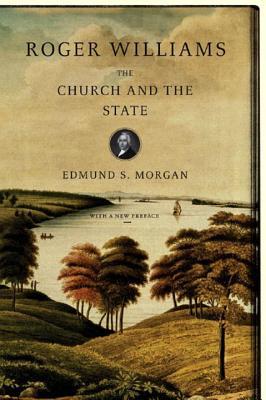A classic of its kind, Edmund S. Morgan's Roger Williams skillfully depicts the intellectual life of the man who, after his expulsion in 1635 from the Massachusetts Bay Colony, founded what would become Rhode Island. As Morgan re-creates the evolution of Williams's thoughts on the nature of the church and the state, he captures with characteristic economy and precision the institutions that informed Williams's worldview, from the Protestant church in England to the Massachusetts government in the seventeenth century. In doing so, Morgan reveals the origins of a perennial and heated American debate, told through the ideas of one of the most brilliant polemicists on the subject, a man whose mind, as Morgan describes, "drove him to examine accepted ideas and carry them to unacceptable conclusions." Forty years after its first publication, Roger Williams remains essential reading for anyone interested in the church, the state, and the right relation of the two."

A classic of its kind, Edmund S. Morgan's Roger Williams skillfully depicts the intellectual life of the man who, after his expulsion in 1635 from the Massachusetts Bay Colony, founded what would become Rhode Island. As Morgan re-creates the evolution of Williams's thoughts on the nature of the church and the state, he captures with characteristic economy and precision the institutions that informed Williams's worldview, from the Protestant church in England to the Massachusetts government in the seventeenth century. In doing so, Morgan reveals the origins of a perennial and heated American debate, told through the ideas of one of the most brilliant polemicists on the subject, a man whose mind, as Morgan describes, "drove him to examine accepted ideas and carry them to unacceptable conclusions." Forty years after its first publication, Roger Williams remains essential reading for anyone interested in the church, the state, and the right relation of the two."